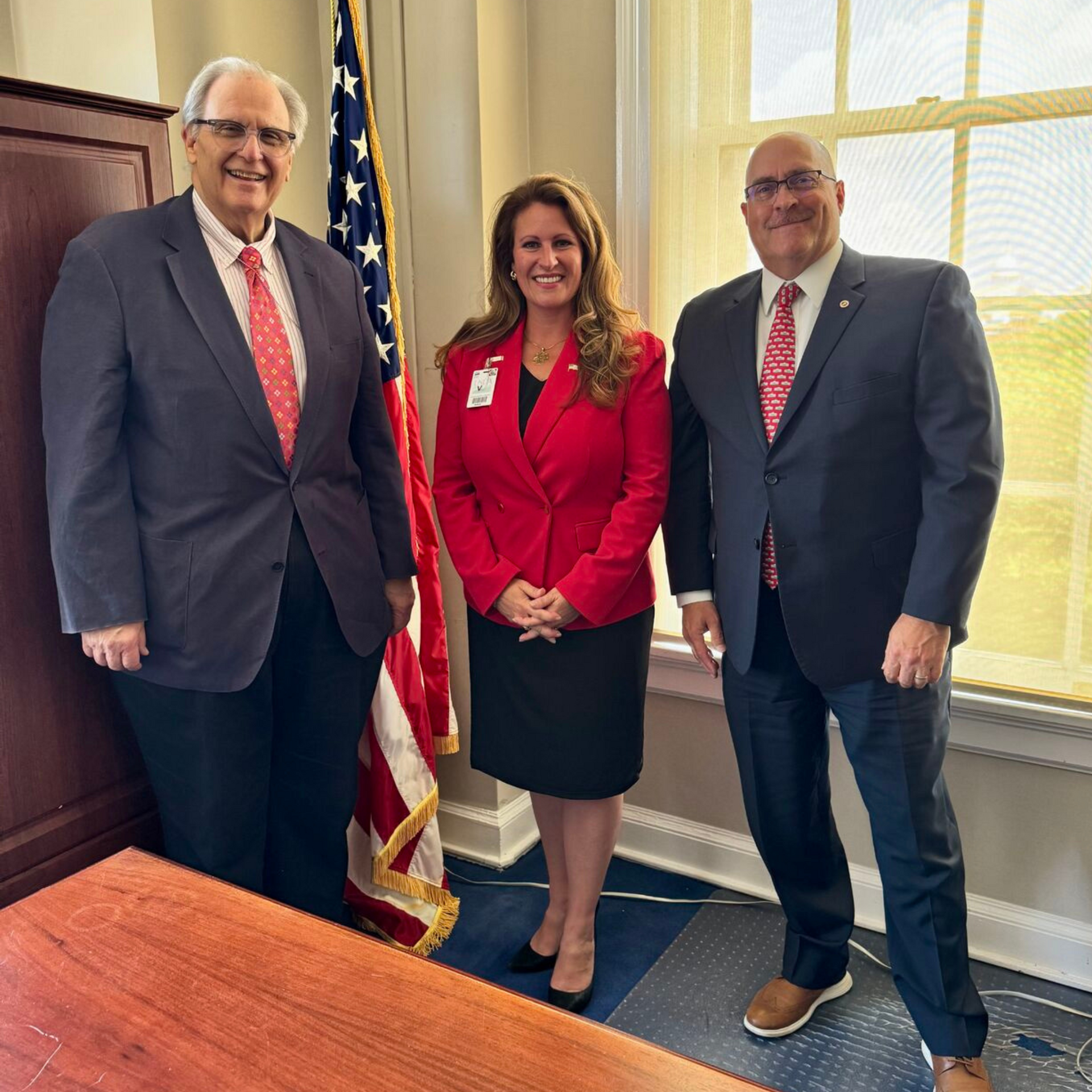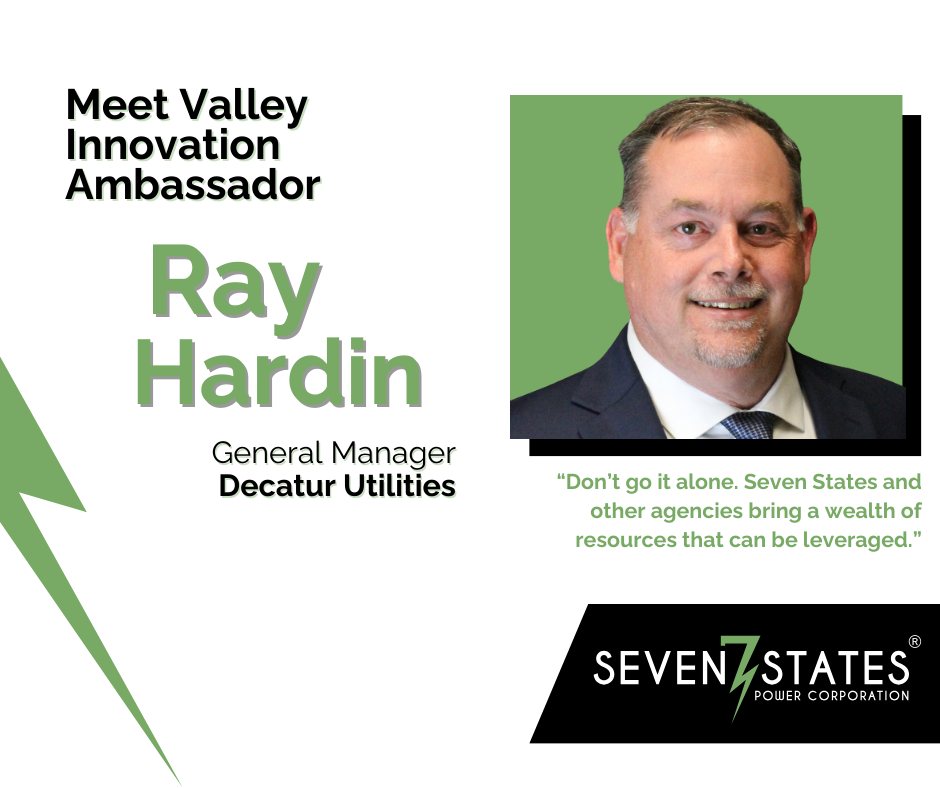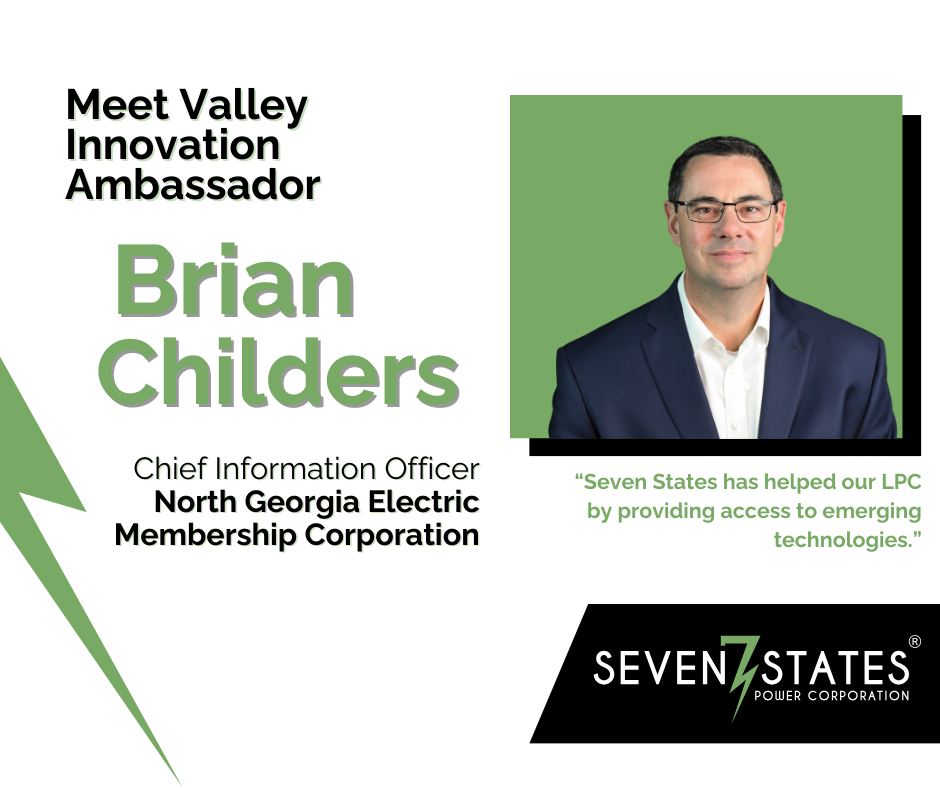
Seven States Power Corporation’s Board Chairman, Jeff Dykes, and President & CEO, Betsey Kirk McCall, met with Congressional leaders earlier this summer as part of a strategic initiative to advance funding to install technologies that make power more efficient, reliable, and abundant. Dykes and McCall sought to amplify the need for greater federal support to Tennessee Valley LPCs for increasing America’s energy infrastructure during a time where creative options are needed against the backdrop of unprecedented growth.
A primary objective of the trip was to listen to legislators’ areas of focus and educate the leaders on how Seven States supports the Valley through times of transition. Many LPCs have voiced concerns over the volume of requests they are receiving to supply energy to data centers. Dykes and McCall emphasized the opportunities Investment Tax Credits (ITC) and alternative financing provide for accelerating large-scale projects that can supply this growing demand for energy.
To date, more than 1200 data centers are in development across the U.S. that will consume an estimated 149.6 -239.3 TWH annually. That represents the equivalent of 15-25 large nuclear plants running continuously to supply the need. Dykes and McCall stressed how cooperatives like Seven States can leverage funding models that alleviate the capital outlays for and accelerate construction of projects that can accommodate the expected growth in the Valley over the next decade from these data centers.
“It will take LPCs, TVA, communities, companies, and developers working together on such projects to meet the need and keep the lights on,” said Dykes.
“We understand that these data centers represent an opportunity for investment in the region. These dollars will improve communities and attract high quality economic development prospects. We want to ensure our member LPCs and TVA are supported and prepared to deliver this opportunity to the Valley,” said McCall.
Dykes and McCall also underscored that Seven States was created by LPCs, in partnership with TVA, as a strategic solution to TVA’s debt ceiling limitations—without amending the TVA Act. From 2007 to 2013, Seven States became the first —and remains the only— LPC-led organization to successfully negotiate a sale/leaseback agreement with TVA to co-own a utility-scale generation asset: the Southaven 800MW Combined Cycle Gas Plant. This makes Seven States uniquely qualified as an in-Valley solution to finance and co-own generation assets with TVA.
“Seven States was created for moments like this. We often serve as the designer or developer, deploying capital and project management expertise to build reliable or advanced energy infrastructure on behalf of LPCs. This allows LPCs to avoid the burden of raising capital or navigating complex regulatory issues,” said McCall.
Another key focus of the trip was to share project updates on the $439 million in funding secured earlier this year through the U.S. Department of Agriculture’s New ERA program. Dykes and McCall outlined how this investment will be used to deliver 250MWs of additional power—aligning with national priorities on energy dominance and security. While in Washington, the team also met directly with USDA officials to provide a progress report on the project.
“We are at a pivotal moment where federal partnerships can accelerate the progress our members are already making,” McCall said. “Our goal is to ensure their contributions—and their challenges—are clearly understood as Congress shapes the future of energy policy.”
More recently, McCall was also in the area conducting meetings during President Trump’s One Big Beautiful Bill event where Zach Stewart of Sequachee Valley Electric Cooperative was among those recognized for their service to the nation in the energy industry. McCall was on site as the new Rural Utilities Services Administrator at USDA, Karl Elmshaeuser, was announced. McCall met with Christopher McClean, former Acting RUS Administrator as part of a series of meetings to further map project details related to the $439 million awarded to Seven States by USDA.
By engaging directly with lawmakers and federal agencies, Dykes and McCall are working to ensure that regulatory frameworks reflect on-the-ground realities. These Washington outreach efforts reinforce Seven States’ commitment to building an energy system that is affordable, reliable, and future-focused. Dykes and McCall expect continued conversations throughout the year as the Valley’s energy future takes shape.




